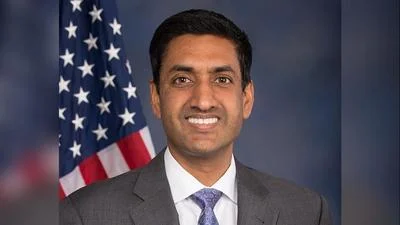John Taylor, Professor of Economics at Stanford University and developer of the "Taylor Rule" for setting interest rates | Stanford University
John Taylor, Professor of Economics at Stanford University and developer of the "Taylor Rule" for setting interest rates | Stanford University
Two committees at Stanford University released reports this summer related to research funding and the fossil fuel industry.
On June 27, a report from the university’s Committee on Funding for Energy Research and Education (CFERE) recommended against prohibiting research funds from fossil fuel companies, citing academic freedom as “an underpinning of good science” and the need for a “robust and diverse” approach to climate solutions.
Two months later, a committee formed by Stanford Doerr School of Sustainability Dean Arun Majumdar and Vice Provost and Dean of Research David Studdert to review the activities of the school’s industrial affiliates programs completed its work. The report from this group, known as the Industrial Affiliates Review Committee (IARC), concluded that while the school’s programs largely adhere to university rules, there are opportunities for improvement. For example, the committee noted compliance with a rule requiring programs to have at least two faculty engaging with multiple companies and clarity on the role of advisory boards could be improved.
“The work of both these committees demonstrates Stanford’s commitment to addressing the globe’s most pressing issues in sustainability and energy,” said Majumdar. “Most importantly, the committees based their efforts on extensive engagement and consultation from across the university community, with particular emphasis on considering a range of perspectives. Ultimately, the committees’ conclusions represent confidence in our faculty and in the policies aimed at fostering research, empowering educational efforts, and promoting transparency.”
On Sept. 23 at 5 p.m., School of Humanities and Sciences Dean Debra Satz and former Stanford Law School Dean Paul Brest will present an overview and summary of the report from CFERE. Following the presentation, there will be a moderated Q&A. The event is open to students, postdocs, faculty, and staff.
The university created CFERE in December 2022. Its charge was to explore current funding received from fossil fuel companies, approaches of other universities, and pros and cons of accepting such funds or alternative approaches. Co-chaired by Paul Brest and Debra Satz, CFERE drew from diverse academic backgrounds with input from administration, faculty, and students.
The committee concluded that forbidding fossil fuel companies from becoming members of industrial affiliates programs based on their climate-related activities would violate academic freedom and impede climate solutions. The final report noted that Stanford’s 1974 Statement on Academic Freedom prohibits “institutional orthodoxy,” meaning the administration may not take positions on political or social issues because that would inhibit researchers from taking alternate positions. However, dissociation based on companies’ propagation of disinformation would be permissible if based on objective criteria.
“Two fundamental principles are core to the CFERE report: academic freedom requires freedom from institutional orthodoxy; adherence to university guidelines,” Majumdar said. “These principles will guide us in following CFERE's recommendations.”
The work from CFERE and IARC came in response to ongoing campus discussion on energy research funding. These reports were preceded by community dialogue facilitated by Doerr School of Sustainability.
Over two years this dialogue included letters discussing values for future partnerships with companies; updates on conversations between Majumdar with students; a letter to The Stanford Daily calling for enforceable standards for research funding provided by fossil fuel companies through affiliate programs; a response supporting different perspectives coming together; making information about industrial affiliates publicly available; posting web pages detailing funding sources.
The university is taking actions in four key areas: updated web pages showing funding sources; ongoing reviews ensuring compliance with policies; creation of a Law School Policy Lab exploring dissociation based on past disinformation propagation; efforts within Doerr School planning pathways towards net-zero emissions.
“The Committee on Funding for Energy Research & Education... have listened to students' recommendations,” Majumdar said.
In January 2024 Doerr School posted its Industrial Affiliates Programs list including funding sources which will be updated annually.
Following IARC's summer report Doerr School is working with relevant faculty directors ensuring full policy compliance expected by autumn quarter end. A broader review led by Bruce Clemens & Maureen McNichols examines campus-wide affiliates' adherence following June's CFERE reminder emphasizing policy adherence importance providing valuable roadmap insights examining other university programs' alignment beginning now.
Exploring dissociation includes eliminating financial sponsorships/dissociating organizations obstructing climate policy last five years via misleading advertising creating Law School Policy Lab developing standards determining systematic disinformation propagation participation examining feasibility fall term taught jointly Brest Diffenbaugh launching new courses LAW809V/SUSTAIN213 investigating these aspects further deeply integrating academic frameworks scrutinizing historical patterns identifying consistent themes driving corporate behaviors analyzing regulatory impacts shaping contemporary practices influencing future trends collaboratively leveraging interdisciplinary expertise refining methodologies enhancing decision-making processes evolving paradigms understanding complex dynamics improving environmental governance promoting ethical accountability advancing sustainable development goals holistically systematically rigorously transparently inclusively comprehensively responsibly ethically practically feasibly implementably strategically globally locally regionally nationally contextually sustainably equitably affordably reliably securely justly progressively innovatively effectively efficiently integratively dynamically synergistically adaptively resiliently robustly pragmatically realistically optimistically constructively thoughtfully critically reflectively iteratively cumulatively iterationally sequentially phase-wise stage-wise incrementally continually progressively sustainably responsibly equitably inclusively comprehensively dynamically flexibly adaptively resiliently robustly sustainably affordably reliably securely equitably inclusively transparently accountably holistically collaboratively innovatively effectively efficiently sustainably practically realistically optimistically thoughtfully critically reflectively iteratively cumulatively synergistically pragmatically strategically globally locally regionally nationally contextually equitably inclusively transparently accountably holistically collaboratively innovatively effectively efficiently sustainably affordably reliably securely equitably inclusively comprehensively responsibly thoughtfully critically reflectively iteratively cumulatively synergistically pragmatically strategically globally locally regionally nationally contextually sustainably responsibly ethically affordably reliably securely justly progressively constructively thoughtfully critically reflectively iteratively cumulatively synergistically pragmatically strategically globally locally regionally nationally contextually sustainably responsibly ethically affordably reliably securely justly progressively constructively thoughtfully critically reflectively iteratively cumulatively synergetically pragmatically strategically globally locally regionally nationally contextually sustainably responsibly ethically affordably reliably securely justly progressively constructiv




 Alerts Sign-up
Alerts Sign-up